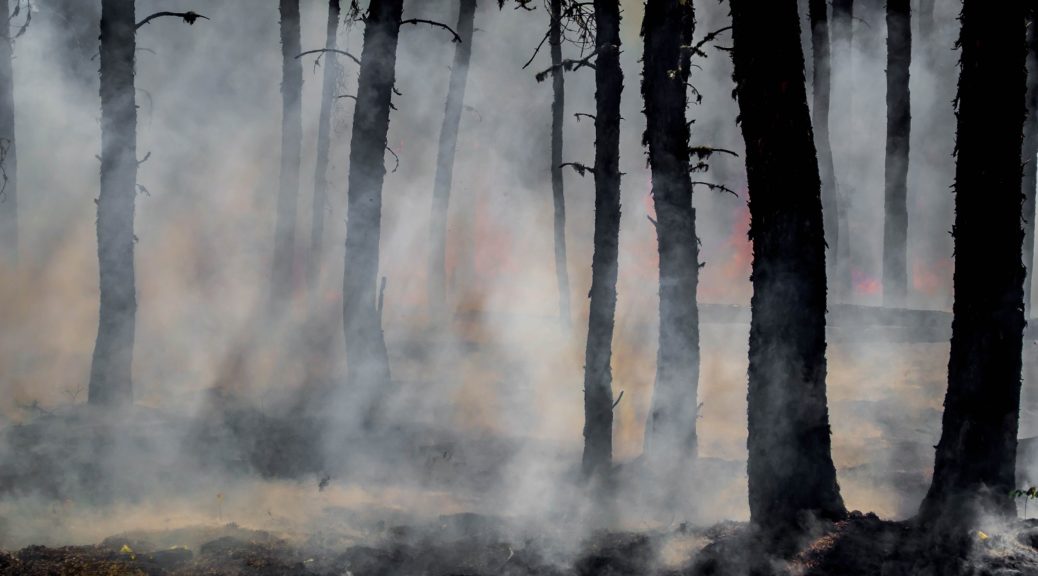Our sympathies go out to those impacted by the wildfires afflicting our Province. Our thanks go out to those who are responding, as well as those who are supporting victims and responders.
The City of Enderby is releasing this information to explain some aspects of what you could expect in the event of a wildfire affecting our community.
Emergency Notifications
Get emergency notifications from the City of Enderby delivered directly to you, through email, text, or telephone, using the Alertable app. Sign up today!
Household Preparation
During an emergency, there may be limited time to evacuate and you may feel panicked. Prepare ahead of time so that you have a plan and can ensure that you bring what is most important for you and your household, should you need to evacuate.
Every household is encouraged to create its own emergency plan and grab-and-go bag.
The Province has an excellent guide to help your household prepare.
Communications During an Emergency
During an emergency, rely on authoritative information sources such as www.cityofenderby.com/emergency or www.facebook.com/OurEnderby or our Alertable app, as well as news media.
Be careful about relying upon or sharing non-authoritative or outdated information sources. Even if well-intentioned, non-authoritative or outdated information sources may contain incorrect statements or instructions that do not reflect the current situation, which others may perceive as factual or current.
By relying upon and sharing accurate information during an evacuation, we can help everybody to respond better and take control of the situation.
Public Respect for Incident Scenes and Emergency Response Operations
When an emergency such as a wildfire is occurring, public respect for incident scenes and emergency response operations is essential to life safety and protecting property.
- Do not try to enter an evacuation area.
- Do not drive towards an incident scene to get a better view.
- Do not operate your watercraft on a body of water where wildfire operations are occurring.
- Do not fly your drone near to any incident scene or emergency response operations.
Emergency Management Organization
In the event of a wildfire or other emergency threatening the City, emergency responders will establish an incident command at the scene for site-level response.
An Emergency Operations Centre (EOC) will be established at City Hall for support if the incident goes beyond what a site-level response can handle. An EOC would be involved in activities like liaising with other agencies, public and media communications, procuring supplies and equipment, advance planning, and issuing evacuation alerts and orders.
In the event that there is an evacuation, a Reception Centre will be established. Support would be delivered to evacuees through the Reception Centre.
Evacuation Planning
The City has an evacuation plan. The plan has multiple evacuation routes and designated Reception Centres. The routes and Reception Centres are determined based on an assessment of the emergency. A wildfire can emerge at different locations and behave in unpredictable ways, so evacuation routes will change based on the threat.
The evacuation information that the City provides will show the area and the route as well as identify Reception Centre locations.
When there is an Evacuation Order, the City works with other agencies, such as the RCMP, to notify affected residents and establish traffic checkpoints.
Types of Evacuations
There are four kinds of evacuation notices that you could expect to see:
- Tactical Evacuation – persons must evacuate from the designated area immediately; the emergency poses an imminent threat to life safety and there is not sufficient time to issue an evacuation alert.
- Evacuation Alert – persons within the designated area should be prepared to evacuate but are not required to do so. This is intended to give people time to prepare. Some persons may choose to self-evacuate at this time.
- Evacuation Order – people within the designated area are required to evacuate. A Reception Centre is set up to register evacuees and identify needed emergency social services.
- Evacuation Rescind – the evacuated population can return to the area as the immediate danger has passed but should remain on alert.
What To Expect During an Evacuation Alert
An Evacuation Alert will give your household time to prepare, although this may not always be the case if the emergency develops quickly or behaves unexpectedly. An Evacuation Alert will describe the affected area. During an evacuation alert, you will be asked to:
- Self-register with Emergency Support Services online. Did you know that you can register and create your profile in advance of an evacuation alert or notice?
- Locate all family members and designate a meeting area outside the evacuation area, should an Evacuation Order be called while separated.
- Pack essential items such as government-issued ID, medications, eyeglasses, valuable papers (e.g. insurance, credit, and mortgage information), immediate care needs for dependents and, if time and space permits, keepsakes for quick departure.
- Prepare to move disabled persons, children and/or neighbours, if assistance is needed.
- Prepare to take pets with you and move livestock to a safe area (if possible).
- Arrange transportation for all your household members. Fill the gas tanks of personal vehicles.
- Arrange accommodation for all members of the residence, if possible.
- Monitor local media, www.cityofenderby.com, and www.facebook.com/OurEnderby for further information, such as an Evacuation Order.
What To Expect During an Evacuation Order
An Evacuation Order requires persons to immediately leave a designated area. The RCMP will typically provide notification of an Evacuation Order to affected properties. An Evacuation Order will describe the designated area, the evacuation route, and Reception Centre locations. During an Evacuation Order, you will be asked to:
- Self-register with Emergency Support Services online, if you have not already done so. Did you know that you can register and create your profile in advance of an evacuation alert or notice?
- Follow the travel route provided and attend a Reception Centre if you need Emergency Support Services or are unable to self-register with Emergency Support Services online.
- Close and lock all windows and doors. Shut off all propane, gas and electric appliances (other than refrigerators and freezers). Your natural gas and electricity will be shut off by your service provider if required.
- Gather your household and assist neighbours who may need assistance.
- Take critical items only if they are immediately available.
- Take pets in pet kennels or on leash.
- Advise the person providing the notification of the Evacuation Order if you are unable to evacuate yourself or other household members without assistance (or otherwise contact a telephone number that will be listed on the Evacuation Order).
- Do not use more vehicles than you need (to avoid congestion).
- Do not use the telephone unless you need emergency services.
As time will be of the essence, if you have a household emergency plan and grab-and-go bag in place, this will help you and your household members to take control of the situation and make every moment count.
Helping Other Communities Affected By Wildfire
We all want to help and give. During an emergency, it is critical that this support is offered in a way that is coordinated so that affected persons are able to access needed, priority, goods and emergency management resources are not diverted away from their core objectives in order to receive and store non-priority goods.
The City encourages local residents who wish to contribute to refer to Provincial media releases identifying designated organizations who have the capacity to receive donations and redistribute those donations to the affected community.
Reception Centres to Receive Evacuees From Other Communities
Sometimes, Reception Centres need to be established in other communities, known as “host communities.” Reception Centres in host communities are established in a coordinated fashion that involves communications with EOCs in other communities as well as requests that may come through Emergency Management BC.
There are many factors that go into evaluating where Reception Centres should be established to receive evacuees from other communities. This includes things like proximity and travel accessibility, anticipated number of evacuees, ability to access accommodations as well as critical goods and services at a potential mass scale, and balancing local capacity.
In many cases, persons will evacuate to accommodations that they self-arrange based on their needs and context, which involves friends, family, or commercial accommodations.
Declaring a State of Local Emergency
The City may declare a State of Local Emergency. This declaration is used when special emergency powers are required. This would involve close coordination with the Province.
As some emergency powers are already available to the City through its enabling legislation and bylaws, a State of Local Emergency may not always need to be declared, even when there is an incident or an EOC is established. It depends on the nature of the emergency and whether additional authority is required in order to respond.
A State of Local Emergency does not need to be declared in order to access provincial funding and support.
Last Updated on March 10, 2025.


